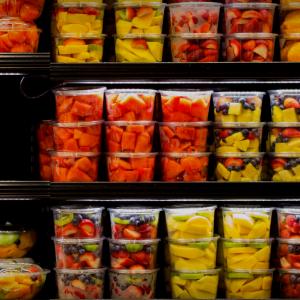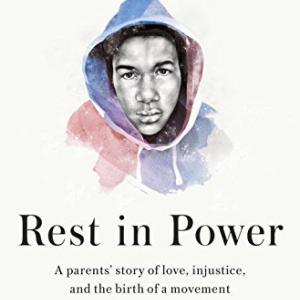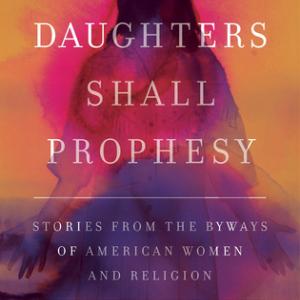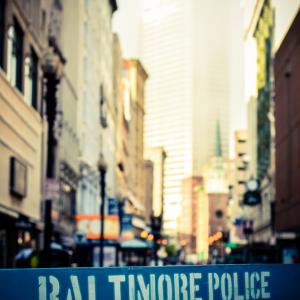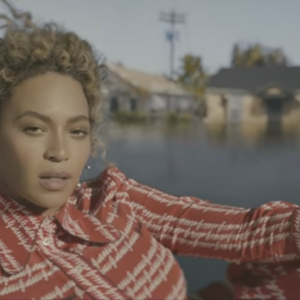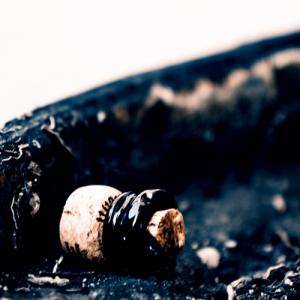
Courtney Hall Lee is a freelance writer and attorney. She co-hosts the "Dovetail" podcast, a show about the intersections of faith, culture, and social justice. Courtney is a graduate of Dartmouth College and earned her law degree from Case Western Reserve University. She is now pursuing graduate studies at Hartford Seminary.
Courtney's first book Black Madonna: a Womanist Look at Mary of Nazareth is forthcoming from Cascade Books. Courtney is a contributor at WomenInTheology.org and her work has appeared at RELEVANT. A northeastern girl adjusting to southern life in Charlotte, N.C., she lives with her husband, daughter, and toy poodle. You can find her on Twitter @courtrhapsody and at CourtneyHallLee.com.
Posts By This Author
Grocery Store Inequity
Why fresh food is often a scarce commodity for low-income people.
FOOD DESERTS ARE low-income areas in urban or rural locations whose populations lack easy access to fresh fruit, vegetables, and other whole foods, usually because of lack of easy access to supermarkets. In 2010, the USDA reported that 18 million Americans live in food deserts, meaning more than a mile from a supermarket in urban/suburban areas and more than 10 miles in rural areas.
While suburban shoppers have more choices than ever, urban and rural Americans often lack access to quality food choices.
Karen Gonzalez, a church and community engagement specialist in Baltimore, works with immigrant populations. “For our clients, the challenge is that they work a lot, often two jobs, so getting to the grocery store and then cooking is a challenge,” says Gonzalez. “The other issue is that there are only two grocery stores in that part of town, and one of them is in the gentrified district—a Whole Foods. So clients often end up in bodegas or convenience stores, which have limited options and are more expensive.”
Food deserts in rural regions naturally raise different problems than those in urban areas. It is unsurprising that supermarkets are farther from people’s homes, but it can be overlooked that some rural low-income people do not own or have direct access to cars.
“Driving down a two-lane highway in rural Nebraska last spring, I passed a Native American man riding an old bicycle toward the nearby Omaha Indian Reservation,” wrote Steph Larsen on Grist.org. “We were at least seven miles from the nearest town, and he had four grocery bags bulging with food slung over his handlebars as he worked to climb a hill. I’ll bet a week’s worth of groceries that he wasn’t biking for the exercise.”
A Murder and a Movement
Rest in Power: The Enduring Life of Trayvon Martin, by Sybrina Fulton and Tracy Martin. Spiegel & Grau.
ON A SUMMER night in New York City, my husband and I enjoyed a weekend getaway. We sat atop the High Line, the elevated park along the west side of Manhattan. But our minds were a thousand miles away, in a courthouse in Florida. The George Zimmerman verdict due to come down that night was a dark cloud hanging over our date. We would finally learn if there would be justice for Trayvon. Eventually, we got our answer in the form of an iPhone news alert. George Zimmerman was acquitted.
The 2012 killing of Trayvon Martin reminded the nation that a deep racial chasm remains in the landscape of our society. The death of a 17-year-old boy carrying only Skittles and iced tea was a senseless loss. For black America, it was a sobering reminder that racism and U.S. justice are woven together so tightly that a man could shoot one of our children and be allowed to sleep in his own bed the same night.
Rest in Power: The Enduring Life of Trayvon Martin is just that, the entire story told by Trayvon’s parents Sybrina Fulton and Tracy Martin. In this raw and earnest memoir, Fulton and Martin allow us to come alongside them as they recall what they experienced in the days and months after their son was killed.
Where the Spirit Calls
And Your Daughters Shall Prophesy: Stories from the Byways of American Women and Religion, by Adrian Shirk. Counterpoint Press.
I RECENTLY attended a conference at Princeton Theological Seminary called “Telling Our Stories: Breaking the Mold, Taking Risks, Paving the Way.” Immersing myself in a group of women of faith remembering their trailblazing predecessors and sharing their faith journeys was particularly synchronistic as I was reading Adrian Shirk’s well-received volume And Your Daughters Shall Prophesy: Stories from the Byways of American Women and Religion.
Shirk’s work is refreshing and compelling in both its unique structure and earnest voice. The book is a delightful hybrid of creative, narrative chapters featuring a diverse array of historical women intertwined with Shirk’s own spiritual memoir. In both instances, Shirk captures a voice that is insightful, sharp, and unlike anyone else’s I’ve read.
Diversity with Justice
Intercultural Ministry: Hope for a Changing World, Edited by Grace Ji-Sun Kim and Jann Aldredge-Clanton. Judson Press.
MARTIN LUTHER KING JR. once famously said: “It is appalling that the most segregated hour of Christian America is 11 o’clock on Sunday morning.” And while Christian people of all varieties have repeated this quote over the years, King’s sentiment is still applicable to the U.S. church of 2017.
LifeWay Research, a firm with Southern Baptist roots, performed a study on the problem of segregated worship. According to LifeWay, two-thirds of Americans have never regularly attended a place of worship where they are an ethnic minority. And the secular Pew Research Center states that eight out of 10 U.S. churchgoers worship where a single racial or ethnic group makes up at least 80 percent of the congregation.
For those who desire to change this reality, Intercultural Ministry: Hope for a Changing World serves as an encouraging anthology. Editors Grace Ji-Sun Kim and Jann Aldredge-Clanton have assembled 15 diverse voices in ministry to give their contributions to the conversation on increasing diversity and intercultural worship in the American church.
When Did Christians Become Comfortable with the Loss of Truth?
In the wake of Michael Flynn’s resignation from national security adviser and inconsistent timelines of the Trump team’s interaction with Russian officials, many are rightly asking questions about national security and election integrity. The administration’s reaction has been outrage over leaks within the intelligence community — even though Trump himself celebrated Wikileaks releasing the DNC’s hacked emails during the campaign season, even going as far as to egg Russia on to find Hillary Clinton’s emails. This all points to a clear lack of transparency and culture of dishonesty from the Trump administration.
The Word of the Year Is 'Post-Truth.' Let's Make Sure That Doesn't Happen Again.
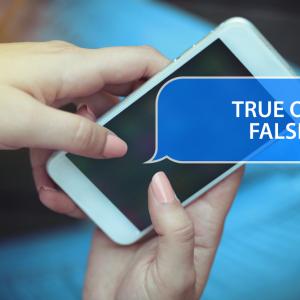
Image via tubartstock/Shutterstock.com
In the months leading up to the election, president-elect Donald Trump asserted many fabrications as truth, including: that President Obama founded ISIS (with help from Hillary Clinton); that President Obama was not born in the United States; that climate change is a Chinese hoax; and that thousands of Muslims danced in the New Jersey streets after 9/11.
Mr. Trump is not the only one to take liberties with the facts. Fake news on all sides proliferated during the election season: Twenty fake news stories outperformed the top 20 real news stories in the last three months of the election.
50 Years Later, Why Are Black Churches Still Under Attack?
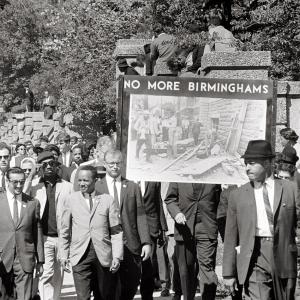
Image via Thomas J. O'Halloran/Wikimedia Commons.
My prayer for the next 50 years is that the church can find the Gospel and put it first — ahead of race, class, nationalism, gun rights, and any other worldly divisions that place God's people in danger; and to recognize that apathy toward any of God’s people is a sin. As Christians, we owe it to the four Birmingham girls and the Charleston Nine to band together, to fight against allowing another hate crime within the walls of a holy space again.
Donald Trump, Roger Ailes, and All the Women
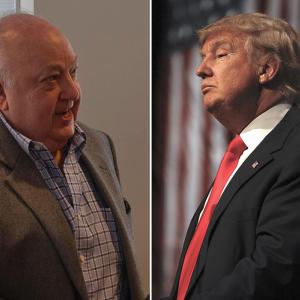
Roger Ailes (left) public domain, and Donald Trump via Joseph Sohm / Shutterstock.com
Perhaps, given Trump’s recent comments regarding workplace harassment of women, this alliance shouldn’t come as a surprise. He recently stated that he believes women who experience sexual harassment in the workplace should seek remedies within the company or ultimately quit the job if necessary. “I would like to think she would find another career or another company if that was the case,” Trump told USA Today when speaking about his daughter Ivanka hypothetically experiencing harassment.
Weekly Wrap 5.20.16: The 10 Best Stories You Missed This Week
1. The Sour Lemonade Review
Ebony Magazine writer Jamilah Lemieux gives her insightful take on prolific black feminist bell hooks’ controversial and critical review of Beyonce’s ‘Lemonade.’ Is the newest wave of feminism drifiting away from the ideology of their predecessors?
2. Jane the Virgin, the Book of Ruth and Latina Identity
Karen Gonzalez considers the complexities of Latina identity on TV. The Virgin, the Bombshell, the Maid…How does a real-life Christian Latina respond?
3. Suicide Rates are Alarmingly High
May is Mental Health awareness month and these suicide statistics are causing talk of a national health crisis. What is it about today’s world that is leading to this upsurge in suicide?
4 Things 'LEMONADE' Teaches Us About Black Womanhood
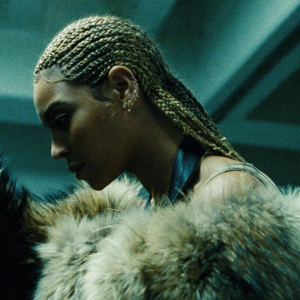
Still from HBO's LEMONADE. Via Facebook.
With the April 23 release of LEMONADE, Beyoncé’s full-length visual album, I am convinced more than ever that “Formation” served as voice crying out on the internet, paving the way for even more conversations about the mistreatment, invisibility, and spiritual essence of black women.
What's at Stake in the Upcoming Baltimore Mayoral Race
As a black person who has lived and worked in struggling cities like these for most of my adult life, I know that the stakes are high in Baltimore. As a black mom, I will have to teach my child what to do if stopped by the police, even though I have no fear that she will ever commit a crime. As the wife of a black man, I wonder if he will be hassled by the police for shoveling our driveway. As a parent who chose to move to the city to give our child the opportunity to have peers who look like her, I know that I am blessed with choices and resources. For those who lack choices and resources, effective leadership is even more crucial.
Black Lives — Not Just Black Votes — Matter
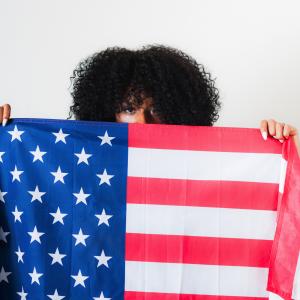
Image via Stacey Newman/Shutterstock.com
Does it make sense for Hillary and Bernie to court the black vote? Absolutely. I am not troubled by their clamor to win our support. What is truly disheartening is that our support does not ensure racial progress. No one candidate should be held responsible for fixing America’s race problem. But what black voters want is a candidate who is brave enough to say that America has a serious race problem.
While both candidates have put some effort in to this message, for both candidates it was only after they faced protest by Black Lives Matter activists. It was only when the media asked them directly if Black Lives Matter that they answered in the affirmative.
Beyoncé and the Next Great Awakening
Rev. Michael Piazza is well known for developing Dallas’s Cathedral of Hope, the first predominantly LGBT church in the country. The Cathedral of Hope grew from a store-front church into a megachurch with a message of inclusivity, love, and justice. I am taking a class taught by Rev. Piazza this semester, and with us he recently shared a compelling insight. Rev. Piazza believes that America will have another Great Awakening.
I think that the time for that awakening could be right now, and Beyoncé’s documentary does a stellar job of showing us why.
How the Flint Water Crisis Opened America’s Eyes to Environmental Injustice
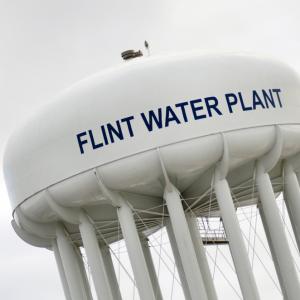
Flint, Mich., water tower. Linda Parton / Shutterstock.com
America’s poor always bear the brunt of manmade ecological problems. Urban air pollution, dwelling near industrial facilities and their waste, and exposure to lead paint are a few of the ways that the poor are put at risk; they face more health problems caused by environmental factors than anyone else. Based on this, I ask this question: Should environmental justice be at the forefront of the church’s social justice ministries?
5 Ways Anyone Can Benefit from a Sober January
One of the most famous miracles in the Bible was when Jesus turned water into wine at a wedding in Cana. When the wine at the party ran dry, at his mother’s request young Jesus made a lot of wine (and he made the good stuff). From the teetotling temperance movement to the sacramental nature of communion wine, alcohol and faith have an interesting relationship. But after a couple-month celebration of thanks, the birth of Christ, and the arrival of a new year, many observe this month as Sober January.
What Will It Take to End the Ban on Gun Violence Research?
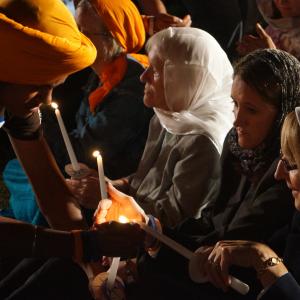
Image via Light Brigading/Flickr
Congress has repeatedly prevented government research of gun violence out of fear. Opponents of gun research fear what it will reveal — uncovering more information might convince more people that there are problems with American gun laws. By avoiding empirical study, it seems clear that we may already suspect the answers.
The Invisible Women of the Daniel Holtzclaw Trial
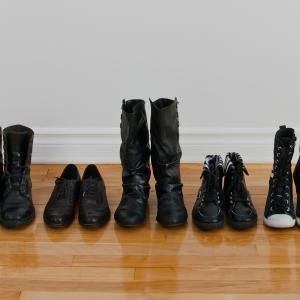
Image via GoodMood Photo/Shutterstock.com
In matters of racism and sexism, even the revolutionaries come with their own biases. The narrative of Jesus and the Canaanite woman shows us the importance of intersectionality, and careful attention that must be paid to highly marginalized people. Jesus wore the glasses of justice, but found that even he came to a situation where he needed a stronger prescription.
'What Kind of God Are You?' Black Theodicy in Times of Tribulation
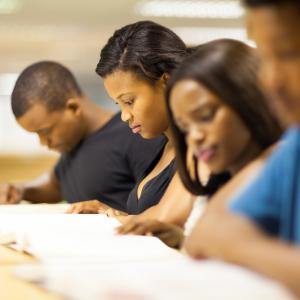
Image via michaeljung/Shutterstock.com
One of the most common criticisms of faith I have heard is this: if there is an all-powerful and loving God somewhere out there, why does this God allow horrible things to happen? In a world where there has always been war, sexual violence, starvation and murder, where is this omnipotent God? Why does he allow these things to happen? Where is she when people suffer injustice?
The Bible gives us plenty of examples of the abuses of the faithful, sometimes even at God's own hand (like in the book of Job). We read of the systemic oppression of the Jewish people and the early Christian church. Through this, God's people were always able to remain steadfast in their faith. Forming a defense of faith in God in the face of realized evil is known as theodicy.
So: In a nation where Blacks have been enslaved, lynched, and raped because of their race, and in time where people must declare that “black lives matter,” how do black Americans form their own theodicy to justify this violence, abuse, and systemic oppression?
And is it necessary to do so?
